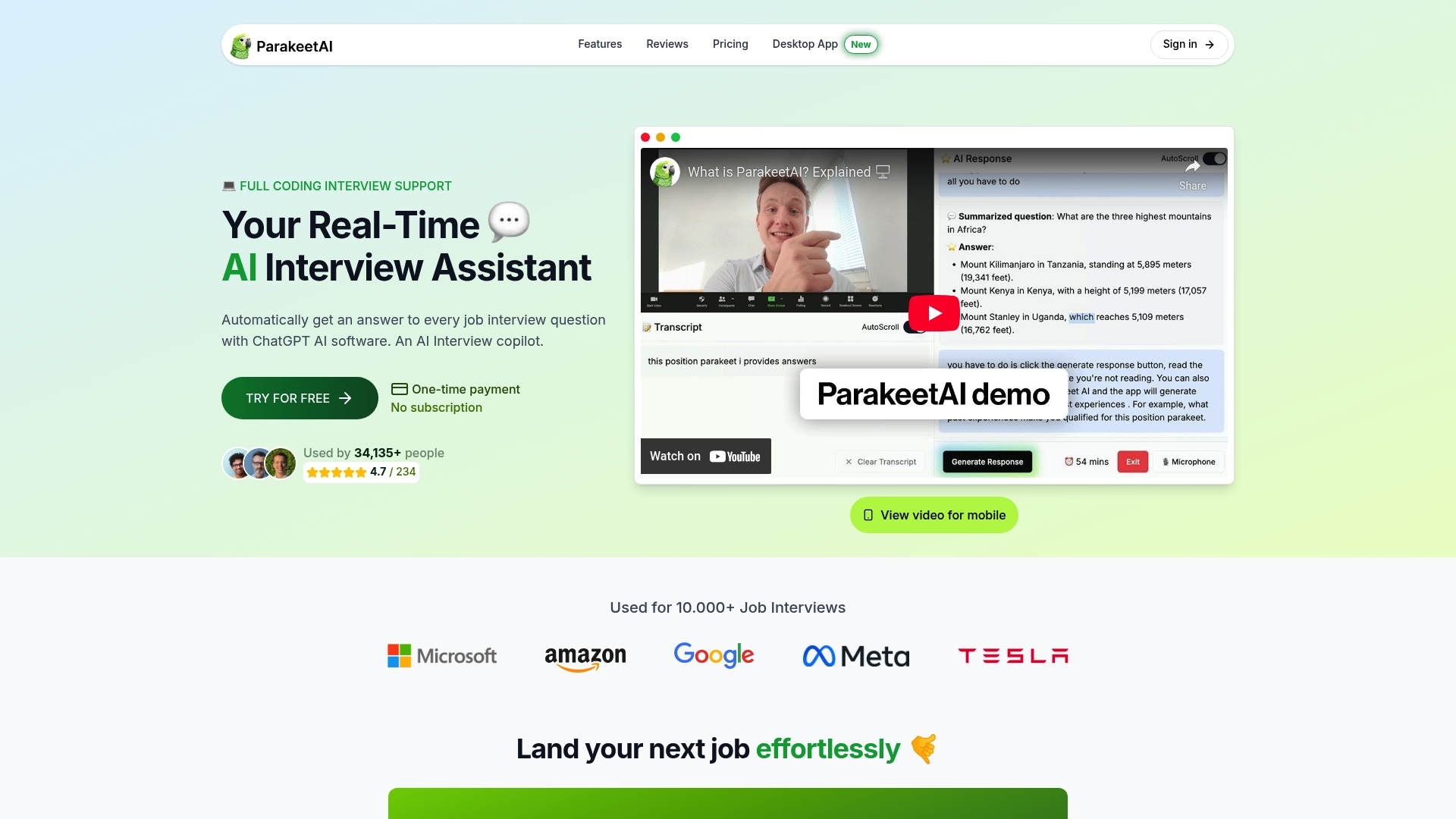Understanding the Interview Preparation Guide for Success

Interview preparation might sound straightforward. Most people expect to just brush up on answers and walk in ready. But fewer realize this has a direct payoff. Candidates who prepare thoroughly are actually 45 percent more likely to land a job offer compared to those who wing it. This flips the entire script: what sets you apart is not just what you know, but how well you set the stage before you even walk into the room.
Table of Contents
- What Is Interview Preparation And Its Importance?
- The Psychological Impact Of Interviewing
- Key Components Of A Successful Interview Strategy
- Common Interview Formats And Their Unique Aspects
- Navigating Cultural Differences In Interviews
Quick Summary
| Takeaway | Explanation |
|---|---|
| Prepare holistically for interviews. | Comprehensive preparation includes research, skill alignment, and narrative development. |
| Confidence arises from extensive preparation. | Thoroughly understanding and rehearsing responses reduces anxiety, enhancing performance during interviews. |
| Strategic self-positioning is key. | Align your skills and experiences with the organization’s needs to demonstrate value effectively. |
| Practice cultural intelligence in interviews. | Understanding cultural norms aids effective communication, demonstrating adaptability and emotional intelligence. |
| Master both verbal and non-verbal communication. | Successful candidates showcase their abilities through articulate speech and mindful body language. |
What is Interview Preparation and Its Importance?
Interview preparation represents a strategic approach to professionally positioning yourself for successful employment opportunities. At its core, this process involves comprehensive research, skill development, and psychological readiness that transforms potential candidates from nervous applicants into confident professionals.
Understanding Interview Preparation
Interview preparation goes beyond memorizing potential questions. It encompasses a holistic approach to presenting your professional narrative, understanding your strengths, and aligning your skills with organizational requirements. Professional candidates recognize that preparation is not just about answering questions, but about demonstrating value.
The process involves multiple critical components:
- Researching the specific company and its culture
- Understanding the job description in depth
- Developing compelling narratives about your professional experiences
- Practicing communication and presentation skills
- Building confidence through systematic preparation
According to LinkedIn’s Global Talent Trends Report, candidates who invest time in thorough interview preparation are 45% more likely to receive job offers compared to those who approach interviews casually.
The Psychological Impact of Preparation
Preparing for interviews is not just a tactical exercise but a psychological strategy. When you invest time in understanding potential questions, researching the company, and rehearsing responses, you significantly reduce anxiety and increase self-assurance. Confidence emerges from comprehensive preparation, transforming interviews from intimidating encounters into opportunities for professional storytelling.
Professional preparation helps you control narrative presentation, enabling you to:
- Frame your experiences positively
- Demonstrate problem solving skills
- Show adaptability and learning orientation
- Highlight your unique professional value proposition
Learn more about effective strategies with our interview preparation process guide, which provides in-depth insights into creating a winning interview approach.
Ultimately, interview preparation is an investment in yourself. It transforms uncertain moments into calculated opportunities for professional advancement, positioning you not just as a candidate, but as a strategic, thoughtful professional ready to contribute meaningfully to potential employers.
The Psychological Impact of Interviewing
Interviews are far more than professional evaluations. They represent deeply complex psychological experiences that can profoundly influence an individual’s self-perception, confidence, and career trajectory. The emotional landscape of interviewing extends well beyond mere question answering, creating significant psychological dynamics that shape professional interactions.
Understanding Interview Stress Mechanisms
Job interviews trigger complex neurological responses that activate our body’s stress systems. When confronted with an interview scenario, candidates experience heightened cortisol levels, increased heart rate, and potential cognitive disruptions that can impair performance. Psychological research from the American Psychological Association reveals that approximately 93% of job seekers experience moderate to high anxiety during interview processes.
The psychological stress manifests through multiple interconnected channels:
- Anticipated judgment and potential rejection
- Performance pressure and self-evaluation
- Fear of inadequacy or insufficient preparation
- Uncertainty about potential outcomes
- Comparison with perceived competitive candidates
Emotional Intelligence in Interview Scenarios
Emotional intelligence becomes a critical factor in navigating interview psychological challenges. Successful candidates develop strategies to manage internal emotional responses, transforming potential anxiety into productive energy. This involves recognizing emotional triggers, practicing self-regulation techniques, and maintaining a balanced perspective.
Critical emotional management strategies include:
- Practicing mindfulness and deep breathing techniques
- Reframing negative thought patterns
- Developing positive self-talk narratives
- Maintaining perspective on interview outcomes
- Understanding that rejection is not personal failure
Learn more about managing interview-related stress with our comprehensive guide on overcoming interview anxiety, which provides targeted strategies for psychological resilience.
Ultimately, understanding the psychological dimensions of interviewing transforms the experience from a potentially traumatic encounter into an opportunity for personal and professional growth. By recognizing and addressing the intricate emotional landscape, candidates can approach interviews with greater confidence, self-awareness, and strategic emotional management.
Here is a table summarizing key emotional management strategies for overcoming interview anxiety presented in the article.
| Emotional Management Strategy | Purpose |
|---|---|
| Mindfulness & Deep Breathing | Reduces immediate anxiety and calms physiological stress responses |
| Reframing Negative Thoughts | Encourages positive perspective and reduces fear of inadequacy |
| Positive Self-Talk Narratives | Builds confidence and reinforces self-assurance |
| Maintaining Perspective | Lessens pressure by viewing outcomes objectively |
| Recognizing Rejection as Growth | Helps process rejection as a learning opportunity, not personal |
Key Components of a Successful Interview Strategy
A successful interview strategy is not a one-size-fits-all approach but a dynamic framework tailored to individual professional profiles and specific job requirements. Effective interview strategies transcend simple preparation, transforming candidates into strategic communicators who can articulate their unique value proposition.
Strategic Self-Positioning
Successful interview strategies begin with understanding how to position oneself as a solution to an organization’s specific needs. This involves deep research, self-analysis, and the ability to craft narratives that align personal experiences with organizational objectives. Research from Harvard Business Review indicates that candidates who can precisely map their skills to job requirements are 3.6 times more likely to advance in the hiring process.
Key elements of strategic self-positioning include:
- Comprehensive understanding of job description nuances
- Identifying transferable skills from previous experiences
- Developing compelling professional narratives
- Understanding the company’s strategic challenges
- Aligning personal achievements with organizational goals
Communication and Presentation Dynamics
Communication goes beyond verbal responses, encompassing non-verbal cues, emotional intelligence, and strategic storytelling. Successful candidates understand that interviews are opportunities to demonstrate professional capabilities through nuanced communication techniques.
Critical communication strategies involve:
- Practicing active listening
- Developing concise and impactful response frameworks
- Managing body language and non-verbal signals
- Demonstrating genuine interest and engagement
- Asking insightful, strategic questions
Learn more about refining your professional communication with our comprehensive guide on interview skills, which provides advanced techniques for effective interview performance.
Ultimately, a successful interview strategy is an integrated approach that combines thorough preparation, strategic self-presentation, and adaptive communication techniques. By viewing interviews as collaborative professional dialogues rather than interrogations, candidates can transform these encounters into meaningful opportunities for mutual assessment and potential collaboration.
Common Interview Formats and Their Unique Aspects
Interviews are dynamic professional interactions with diverse formats designed to evaluate candidate capabilities from multiple perspectives. Each interview format serves a strategic purpose, revealing different dimensions of a candidate’s professional potential. Understanding these variations enables candidates to adapt and perform optimally across different evaluation scenarios.
To clarify the main differences and applications, the following table compares structured and unstructured interview approaches as discussed in the article.
| Interview Approach | Description | Unique Aspects |
|---|---|---|
| Structured Interview | Based on a consistent set of questions and evaluation criteria | Higher predictive accuracy (65%), standardized comparison |
| Unstructured Interview | Conversational, open-ended, and flexible | Adaptive to candidate responses, less predictive consistency |
| Technical Assessment | Evaluates specific job-related or technical skills | Focused on theoretical knowledge and practical implementation |
| Behavioral Assessment | Assesses behavioral competencies and adaptability | Examines problem solving, communication, and cultural alignment |
Structured vs. Unstructured Interview Approaches
Organizations employ varied interview methodologies to comprehensively assess candidate suitability.
INFOGRAPHIC:infographic_content] [Research from the Society for Human Resource Management demonstrates that structured interviews provide 65% more predictive accuracy about job performance compared to unstructured conversations.
Key interview format characteristics include:
- Traditional face-to-face interviews
- Panel interviews with multiple evaluators
- Video conference interviews
- Technical skill assessment interviews
- Behavioral competency interviews
- Group discussion scenarios
Technical and Behavioral Assessment Dynamics
Modern interview formats blend technical skill evaluation with behavioral competency assessment, creating multidimensional candidate profiles. Technical interviews focus on specific professional capabilities, while behavioral interviews explore problem solving approaches, interpersonal skills, and cultural alignment.
Unique assessment dimensions across interview formats:
- Assessing theoretical knowledge
- Evaluating practical implementation skills
- Understanding candidate adaptability
- Measuring communication effectiveness
- Exploring professional decision making patterns
Learn more about navigating different interview scenarios with our comprehensive guide on common interview questions, which provides insights into various assessment strategies.
Ultimately, successful candidates recognize that interview formats are not obstacles but opportunities to showcase professional capabilities. By understanding the nuanced objectives of different interview approaches, professionals can strategically present their skills, experiences, and potential value to prospective employers.
Navigating Cultural Differences in Interviews
Interviews are complex social interactions deeply influenced by cultural contexts, communication norms, and unspoken professional expectations. Cultural intelligence has become a critical skill in modern global professional environments, transforming interview preparation from a technical exercise into a nuanced cultural navigation.
Understanding Cultural Communication Variations
Cross-cultural communication research from Hofstede Insights reveals significant variations in interview communication styles across different cultural frameworks. Professional interactions are not universal but are shaped by intricate cultural dynamics that impact verbal and non-verbal communication strategies.
Key cultural communication considerations include:
- Variations in direct versus indirect communication styles
- Different interpretations of professional politeness
- Contrasting approaches to hierarchy and authority
- Unique non-verbal communication signals
- Diverse perspectives on self-promotion
Adaptive Professional Communication Strategies
Successful candidates develop cultural adaptability as a core professional competency, recognizing that effective communication transcends language and requires deep empathy and contextual understanding. This involves recognizing and respectfully navigating cultural nuances without compromising personal authenticity.
Strategies for culturally intelligent interview performance:
- Researching specific cultural communication norms
- Practicing active listening across cultural contexts
- Developing flexible communication approaches
- Demonstrating respectful curiosity
- Managing non-verbal communication signals
Learn more about refining your cross-cultural communication skills with our comprehensive guide on interview questions across different professional contexts, which provides insights into global communication strategies.
Ultimately, navigating cultural differences in interviews is not about conforming but about building genuine cross-cultural understanding. Professionals who approach interviews as opportunities for mutual cultural learning demonstrate the adaptability and emotional intelligence that modern global organizations deeply value.

Take Control of Your Interview Outcomes with AI-Powered Assistant
Struggling with anxiety, unpredictable interview formats, or not sure how to position yourself? The article discusses how skillful preparation, real-time confidence, and mastering communication are key drivers of interview success. Too often, nerves and uncertainty can weaken even the most capable professional. Imagine having a tool that not only helps you reduce stress but also empowers you with real-time answers and smart interview strategies tailored to any situation.

Why go into your next interview alone? Transform the way you prepare and perform with Parakeet AI, your real-time AI job interview assistant. Whether you want to overcome anxiety as described in our section on psychological impact or practice advanced strategies for different interview types, Parakeet AI listens, analyzes, and provides instant responses to every question. Ready to move beyond theory and experience real confidence? Visit our landing page now to see how cutting-edge AI can help you conquer your next interview challenge.
Frequently Asked Questions
What is the importance of interview preparation?
Interview preparation is crucial as it transforms candidates from nervous applicants into confident professionals. It involves research, skill development, and understanding how to effectively present one’s professional narrative to demonstrate value to potential employers.
How can I reduce anxiety before an interview?
To reduce anxiety before an interview, engage in comprehensive preparation, practice mindfulness and deep breathing techniques, and develop positive self-talk. This approach can transform anxiety into productive energy, helping you feel more confident during the interview.
What are some key components of a successful interview strategy?
Key components of a successful interview strategy include strategic self-positioning, effective communication, and understanding the unique aspects of different interview formats. Tailoring your approach based on job requirements and company culture enhances your chances for success.
How can cultural differences impact an interview?
Cultural differences can significantly impact interviews through variations in communication styles, interpretations of politeness, and non-verbal signals. Being culturally intelligent and adaptable in your communication demonstrates professionalism and respect, improving your chances of making a favorable impression.




